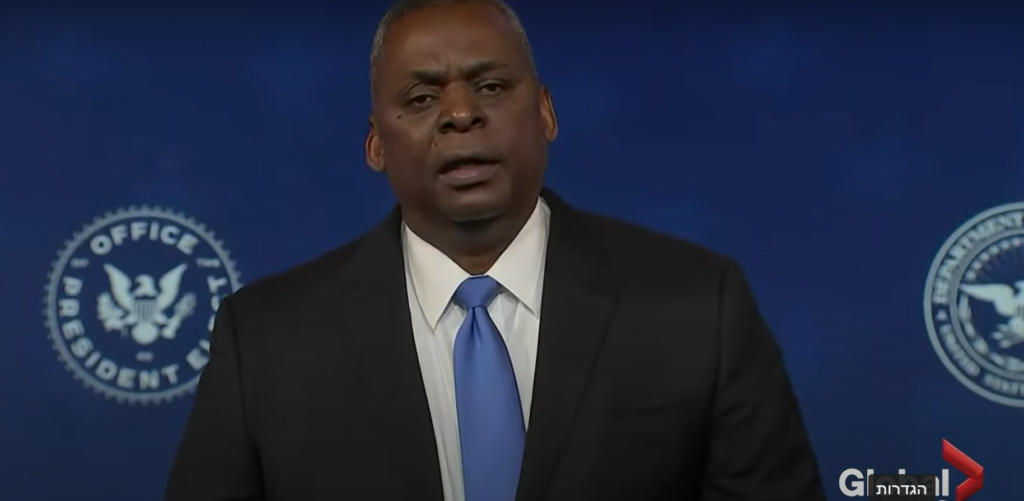The Chief of the Joint Chiefs of Staff of the US Army, General Mark Milley, arrived in Israel at the end of the week and was intended to meet with senior members of the defense establishment.
The US is concerned about two main developments: the escalation in Judea and Samaria, which may also develop into a regional escalation and spread to the border of the Gaza Strip and southern Lebanon, and the developments in Iran in the nuclear field, Iran is approaching the red line of uranium enrichment at a level of 90 percent which will allow it to produce its first nuclear bomb.
A few days ago, Colin Kahl, the US undersecretary of defense for policy affairs, said that Iran could produce enough fissile material to make a nuclear bomb within 12 days.
Senior political officials in Jerusalem say that the surprise visit of US Defense Secretary Lloyd Austin to the Middle East is an important visit and will include Israel, Egypt and Jordan.
The visit will take place before the follow-up meeting of the Aqaba Summit which is supposed to take place in a few days in Sharm el-Sheikh in Egypt.
The American Secretary of Defense is scheduled to meet with Prime Minister Netanyahu, with King Abdullah of Jordan and with Egyptian President al-Sisi, it seems that the visit will focus on two main issues.
- Saving the American security plan formulated by General Mike Fenzel for the war against Palestinian terrorism through the recruitment and training of thousands of Palestinian security personnel to be deployed in the northern West Bank.
The Americans fear that the recent attack in the town of Hawara in which two Israeli citizens were murdered and the violent reaction of the settlers to the attack damaged the motivation of the parties to implement the American plan.
The Americans will demand that Israel compensate the residents of Hawara who were affected by the riots and punish the settlers who were involved in them.
The Biden administration fears the collapse of the understandings reached at the Aqaba meeting after the statements of Ministers Ben Gvir and Smotrich who renounced the conclusions at the meeting and wants to make sure that Prime Minister Netanyahu and his government are committed to what was agreed upon.
- The Iranian danger – a new American deployment with its allies in the region in light of the alarming developments in Iran regarding the enrichment of uranium to a level approaching 90 percent while the US is busy dealing with the war in Ukraine and the close military cooperation between Iran and Russia.
Security officials in Israel say that Iran has become a global danger and that the threats it produces are not only focused throughout the Middle East, they challenge the entire world.
According to them, Iran sees a golden opportunity in Russia’s military dependence on Iran’s military capabilities in the field of drones and missiles in order to move towards the nuclear bomb.
The Russians need Iranian drones and missiles for the war in Ukraine and they are ready to guarantee Iran technical assistance regarding the nuclear bomb production mechanism and political backing in the UN Security Council by vetoing any proposed resolution against Iran, the US already understands the problem and is beginning to prepare accordingly .
This week, Strategic Affairs Minister Ron Dermer and National Security Adviser Tzachi Hanegbi will go to Washington for discussions with senior government officials about the Iranian threat and the escalation in Judea and Samaria ahead of the month of Ramadan. In Jerusalem, they hope that the visit will lead to Prime Minister Netanyahu being invited to a meeting with President Biden at the White House soon, at the center of which will be the issue of the Iranian threat.




